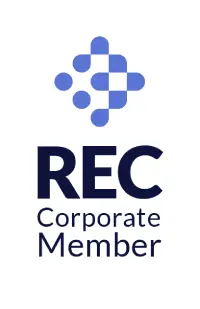Securing a nursing job in Germany involves understanding both the requirements and the steps necessary to enter the healthcare sector as a qualified professional. Germany has a high demand for nurses, providing substantial opportunities for both local and international candidates. To begin with, it is essential to have a recognized nursing qualification. Nurses trained outside the European Union must have their qualifications validated by the German authorities, a process that includes equivalence assessment by the competent state health authorities.
Language proficiency in German is a critical requirement, with most employers and regions expecting at least a B2 level of competence according to the Common European Framework of Reference for Languages. In a hospital setting, this guarantees efficient communication between patients and coworkers.
Prospective nurses must apply for a professional license, which authorizes them to practice in Germany. The application process involves submitting verified documentation and sometimes passing a medical language test.
Additionally, it is advisable to gain familiarity with the German healthcare system, including its policies and operational protocols. Networking with professionals in the sector and engaging with organizations such as the German Nurses Association can provide valuable insights and increase job prospects. Job seekers should utilize online platforms dedicated to healthcare employment in Germany to find suitable positions.
Understanding the Demand for Nurses in Germany
Germany faces a significant shortage of skilled nursing professionals, driven by an aging population and an increasing demand for healthcare services. The country’s demographic trends indicate a growing number of elderly citizens, necessitating more comprehensive healthcare and long-term nursing care. Due to this change in the population, there is an increased need for licensed nurses in a number of healthcare settings, such as hospitals, assisted living institutions, and home care services.
The German Federal Employment Agency has consistently listed nursing as a high-shortage profession, emphasizing the urgent need for both general and specialized nursing staff. To address this gap, the German government has implemented favorable policies for foreign-trained nurses, including simplified recognition of international nursing qualifications and support for language acquisition. These measures aim to attract more international nursing professionals to fill the critical void in the healthcare system, making it a suitable time for foreign nurses to consider Germany as a viable option for advancing their careers.

Recognizing the Requirements
To work as a nurse in Germany, you must meet certain requirements:
- Professional Qualifications
- Recognition of Qualifications
- Language Proficiency
- Visa and Work Permit
Let us understand the above pointers in more detail.
Getting Your Qualifications Recognized
For internationally trained nurses aspiring to practice in Germany, navigating the accreditation process is crucial. Germany requires that all foreign nursing qualifications be recognized to ensure they meet national standards. This process is overseen by the respective German state health authorities, with each state potentially having slightly different requirements. Initially, candidates must submit detailed documentation, including diplomas and proof of professional experience, often needing translation into German.
A key aspect is the equivalence assessment, where the candidate’s education and training are compared with the German nursing curriculum. If discrepancies are found, applicants may need to undergo adaptation periods, such as additional training or passing an exam. Speaking German is also necessary; this is usually confirmed by a B2-level certification based on the Common European Framework for Languages. Successfully navigating this process not only legitimizes one’s qualifications but also integrates the individual into the healthcare system, ensuring that they are well-prepared to provide competent and culturally sensitive care in their new roles.
Language Proficiency
To secure a nursing job in Germany, achieving proficiency in the German language is essential. The CEFR categorizes language skills from A1 (beginner) to C2 (mastery). For nursing positions, a minimum of B2 level is typically required, ensuring effective communication with patients and colleagues. This proficiency level enables nurses to understand complex texts, engage in spontaneous conversations, and articulate clear, detailed explanations of diverse topics—skills crucial in the healthcare setting.
Hospitals and healthcare institutions might also require passing specific language examinations, such as the “Fachsprachprüfung” (professional language examination) at the B2-C1 level, which assesses language skills in medical contexts. Additionally, language competence not only facilitates smoother integration into the workplace but also helps in navigating daily life and understanding cultural nuances, significantly enhancing the expatriation experience. Prospective nurses are advised to undertake language preparation early, utilizing resources like language courses, online platforms, and immersion experiences, to meet these requirements effectively and to ease their transition into the German healthcare system.
Applying for a Visa
Finding and hopping on a nursing job in Germany necessitates navigating the country’s visa application process, tailored to accommodate the high demand for healthcare professionals. For non-EU nationals, this typically involves obtaining a recognition of professional qualifications followed by a job offer from a German employer. Subsequently, one must apply for a work visa or a Blue Card—a special residence permit for highly skilled non-EU citizens. The process includes presenting relevant documents like diplomas, a contract of employment, and proof of language proficiency, generally at the B1 level in German.
The German Federal Employment Agency often plays a pivotal role in verifying that a local or EU candidate cannot fill the position. Furthermore, specific visa guidelines can vary based on the applicant’s country of origin, adding layers of complexity to the application process.
Understanding these requirements is crucial for prospective nursing professionals aiming to build their careers in Germany’s robust healthcare sector. This section serves as a foundational guide for those embarking on this intricate yet rewarding professional journey.

Job Hunting
In the complex and competitive landscape of nursing employment, especially in countries like Germany with stringent healthcare regulations, recruitment agencies such as Dynamic Health Staff play an essential role in simplifying the job search process. These agencies are extremely helpful to people looking for nursing careers since they have extensive knowledge of the local marketplace for employment and regulatory compliance. By partnering with a recruitment agency, nurses can bypass the exhausting and often confusing steps involved in job hunting, from fine-tuning resumes to navigating the visa application process.
We at Dynamic Health Staff offer tailored assistance that aligns with nurses’ regulatory requirements and individual career goals. This personalized approach not only enhances their chances of securing a job but also ensures a smoother transition into the German healthcare system. Utilizing our expertise by partnering with us can transform a daunting job search into a streamlined journey, allowing nurses to focus more on their professional development and less on the logistics of employment.
Application Process
Navigating the application process for a nursing job in Germany requires a thorough understanding of both regulatory requirements and practical steps. Initially, international nurses must validate their qualifications through the recognition process, which involves submitting documents like diplomas and professional licenses to a designated German authority. This recognition confirms that foreign qualifications are equivalent to German standards. Additionally, proficiency in the German language is essential, typically demonstrated by a B2-level certification from a recognized institution.
Following qualification recognition, applicants should obtain a visa for employment purposes if they are from outside the EU, facilitated by the German embassy in their home country. The application phase involves searching for job opportunities, which are abundant due to the high demand for healthcare professionals. Key platforms include public health sector job boards and private recruitment agencies specializing in healthcare.
Crafting a tailored resume and cover letter aligned with German norms enhances the chances of securing an interview. Preparing for potential interviews by familiarizing oneself with common questions in the German healthcare context can further increase employment prospects. Throughout this process, understanding cultural nuances and employment laws in Germany is crucial for a successful application and integration into the German healthcare system.
The Interview
It takes more than just credentials to successfully navigate the difficulties of landing a nursing job in Germany; you also need to prepare well for the interview process. At Dynamic Health Staff, we specialize in equipping candidates with the essential skills and insights needed to impress potential employers. We also arrange the interviews for our candidates.
Our tailored approach includes understanding the German healthcare system, mastering job-specific German language nuances, and presenting oneself effectively in a professional context. Through mock interviews, feedback sessions, and comprehensive support materials, we ensure that each candidate is not only prepared but stands out in the competitive field. Join us to transform your readiness into success.
Relocation and Settlement
Starting a new career journey in Germany as a nurse involves more than securing a job; it requires a seamless transition into a new country and lifestyle. At Dynamic Health Staff, we understand that the relocation and settlement process can be daunting. Our dedicated services are tailored to assist nurses in navigating the complexities of moving to Germany, ensuring a smooth and stress-free experience. From handling visa applications and finding accommodation to understanding local healthcare regulations and integrating into German culture, our expert team provides comprehensive support.
We also offer language training to help nurses communicate effectively in their new environment and understand the nuances of the German healthcare system. With our assistance, nurses can focus on their professional responsibilities, confident that all logistical aspects of their relocation are managed efficiently. Our commitment to providing personalized support extends beyond the initial settlement, helping nurses thrive in their new roles and communities.
Continuing Professional Development
In order to guarantee that nurses stay at the forefront of patient care and medical standards, the nursing profession in Germany requires both initial credentials and continuous professional development (CPD). German healthcare regulations emphasize continuous education, requiring nurses to engage in CPD activities periodically to maintain their registration and competence. This framework is supported by the German Nursing Council and various professional associations, which provide structured CPD courses and guidelines. These programs cover a broad spectrum, including clinical skills, advanced practice, leadership, and specialized care areas such as geriatrics or palliative care.
Participation in CPD not only enhances clinical capabilities but also significantly improves job prospects. Employers in Germany’s healthcare sector value nurses who demonstrate a commitment to lifelong learning, reflecting their dedication to improving patient outcomes. Additionally, engaging in CPD can open doors to higher positions, such as nurse management or specialized consultant roles. Thus, for nurses seeking employment in Germany, understanding and planning for CPD requirements is crucial, underscoring their adaptability and readiness to meet the dynamic needs of the healthcare industry.
Conclusion
Hopping a nursing job in Germany offers a rewarding opportunity to engage in a healthcare system renowned for its high standards and innovative practices. As the demand for skilled nurses continues to grow, Germany has become an attractive destination for international healthcare professionals seeking advanced career opportunities and a high quality of life.
For those looking to embark on this journey, understanding the local language and regulatory requirements is crucial. Mastery of the German language is often a prerequisite, and the relevant German authorities must recognize foreign nursing qualifications.
We at Dynamic Health Staff play a pivotal role in smoothing this transition. With our deep understanding of the German healthcare employment landscape and robust support system, we assist nurses in navigating the complexities of certification, language proficiency, and job placement.
Our services are designed to streamline the process, from personalized training programs to ensure your qualifications meet German standards to assistance with visa applications and relocation. By partnering with us, aspiring nurses are well-equipped to overcome the challenges of securing a nursing job in Germany, ensuring a smooth integration into the local healthcare system and culture. Contact us today at healthcare@dynamichealthstaff.com or +91-9810017608 to find out more about our services.






